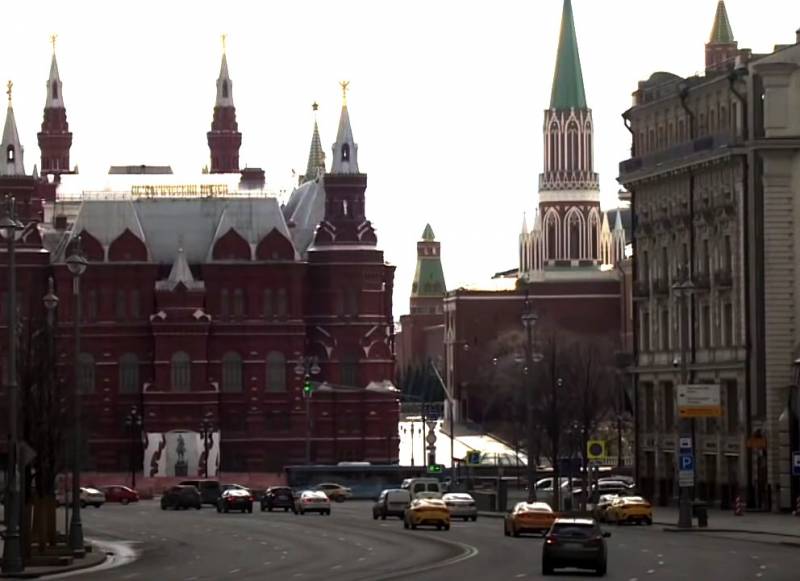The devastating consequences of a pandemic for the Russian economy
The coronavirus pandemic and the collapse in oil prices have led the world to a new economic crisis. In Russia, the socio-economic situation is also deteriorating, but our country has yet to face the most serious consequences of quarantine measures.
Not so long ago, the Chairman of the Federation Council of the Russian Federation, Valentina Matvienko, tried to reassure the Russians: they say that even with low oil prices, our country will be able to overcome the economic crisis. The Minister of Finance Anton Siluanov is talking about the same thing, but the head of the Accounts Chamber Alexei Kudrin, on the contrary, is predicting Russia's economic recession. This means that economic growth in the country will stop, or maybe a decline will begin, a rollback to the indicators of bygone years. Business Ombudsman Boris Titov does not rule out that Russia's GDP will decline by at least 10%.
For the global economy, the spring of 2020 was disastrous. Measures to protect against the epidemic have led many countries to actually close their borders, minimize transport links, and stop entire business lines. Even China’s “world factory” is not going through the best of times and is just trying to recover from the devastating effects of quarantine measures.
Russia was no exception. Moreover, it is worth considering that our country is seriously dependent on oil exports, but the demand for oil and its refined products is falling under quarantine measures, and prices have simply fallen. Even Vladimir Putin admits that falling oil prices has become a serious challenge for the country.
What are the consequences of the economic crisis caused by the pandemic in our country? Already, it can be argued that unemployment will increase significantly. The introduced self-isolation regime has already led to the suspension or complete cessation of the activities of many businesses, especially those engaged in such areas as tourism, hotels and hotels, transportation, catering, trade in non-food goods, sports and leisure, repair and decoration works for private owners. A significant part of the workers was left without work, and many may be cut in the very near future.
The second direct consequence of the crisis is a reduction in household incomes. VEB RF experts predict that in April-June 2020, real incomes of Russians will be reduced by 17,5%. But these are very approximate figures averaged. Indeed, for many citizens employed in the industries mentioned above, incomes have already decreased by at least 50%.
Inflation is another consequence of the pandemic. And now we are not talking about speculation with ginger, masks or lemons, but about raising prices for a significant part of the most important food and non-food products. An increase in the value of the dollar and the euro, combined with logistical problems, will increase the price of imported goods.
The decline in income, also against the backdrop of inflation, is followed by a drop in the purchasing power of the population. Demand for goods decreases, which naturally entails a decrease in supply. For example, now analysts have noted a decrease in average spending by Russians by 30%. It is clear that millions of workers sent to self-isolation without paying wages will only buy vital food and medicine.
Unfortunately, the leadership of the country does not have any coherent anti-crisis program. This is evidenced by the statements of the head of state and the actions of regional leaders on the ground. The only thing that the authorities can do so far is to slightly reduce the potential growth of social tension by paying various benefits during self-isolation and easing the tax burden.
But here everything is relative: most banks did not provide any credit holidays to their borrowers, and the president signed a law on taxing interest on deposits of citizens over 1 million rubles. And this is also indicative: 1-2 million rubles may lie in the bank with the most ordinary hard worker, who has been saving them all his life or selling, for example, a hereditary apartment. As for the real rich, they both withheld and will withhold their true incomes.
Sanctions of the West may become an additional threat to the Russian economy: it is possible that the United States will try to take advantage of a difficult situation (which, incidentally, is not easy for the Americans themselves) to deliver another blow to the Russian economy.
Now the country's leadership is faced with the main task: to prevent a social catastrophe in the country and, as a result, political destabilization against the backdrop of the economic crisis. Therefore, of course, funds from the National Wealth Fund will be thrown to overcome the consequences of the pandemic. A separate question: how much of these funds will be enough in case of a protracted economic crisis.

Information